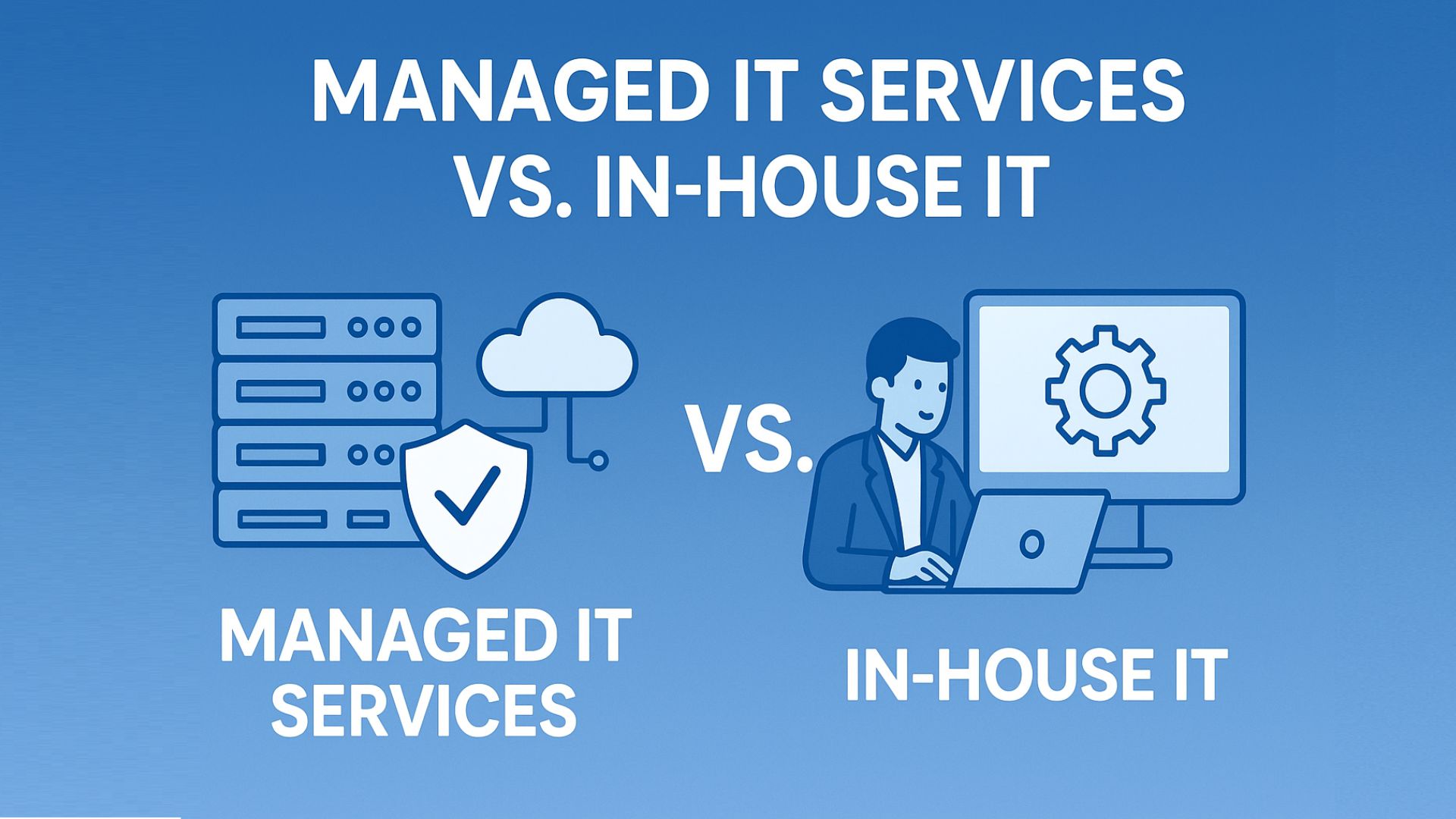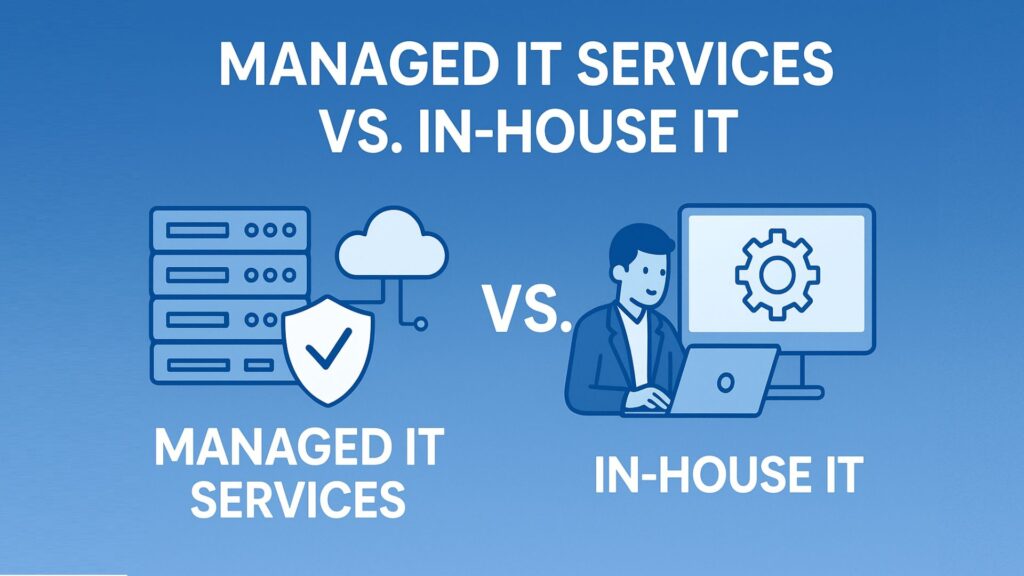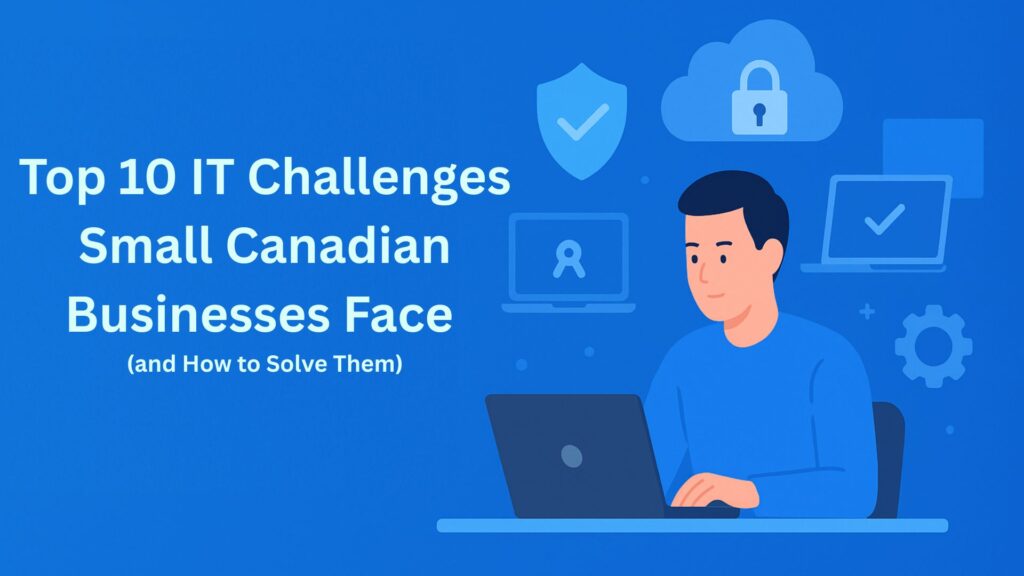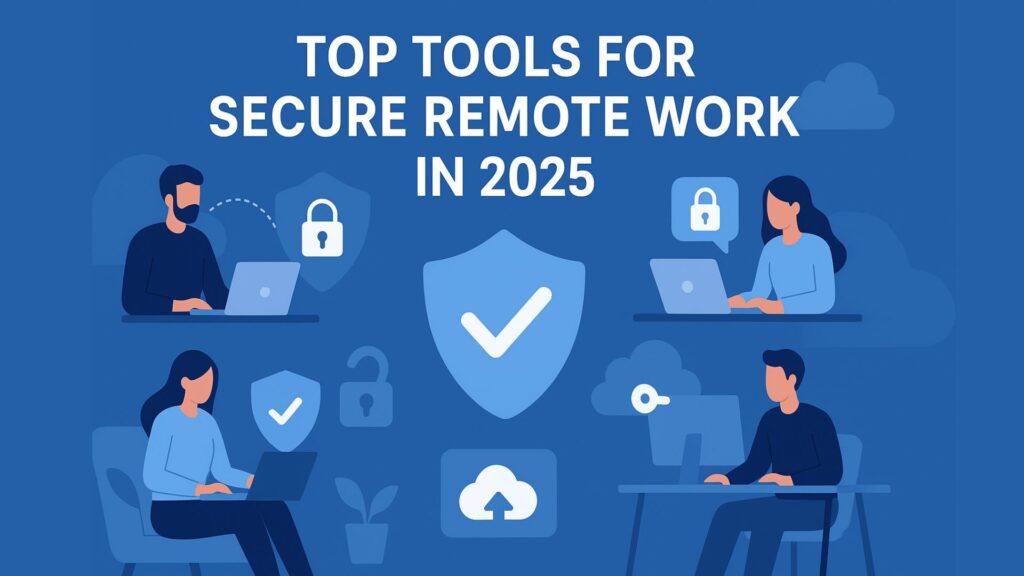Managed IT Services vs. In-House IT: Which Is Better for Your Business?
Poindexters Lab
November 14, 2025

As technology becomes the backbone of every business, organizations are increasingly faced with an important question:
Should we hire an in-house IT team, or should we outsource to a Managed IT Service provider (MSP)?
Both options have their advantages, but the right choice depends on your business size, budget, goals, and IT workload. This guide breaks down the key differences so you can make an informed decision.
What Are Managed IT Services?
Managed IT Services are outsourced technology services provided by a third-party company (MSP). This includes tasks like:
24/7 system monitoring
Cybersecurity management
Cloud services
Data backup & disaster recovery
Network management
Helpdesk support
Essentially, you get a full IT department — without hiring internally.
What Is In-House IT?
An in-house IT model involves building your own internal team of technicians or IT managers. They are fully dedicated to your organization and handle:
Daily IT troubleshooting
Hardware support
Internal network configurations
Employee onboarding/offboarding
Internal IT projects
This model gives you direct control over your IT operations.
Managed IT Services vs. In-House IT: Key Comparisons
1. Cost
Managed IT Services:
Predictable monthly fee. No salaries, benefits, training, or equipment costs.
Best for: Small to medium businesses aiming to reduce expenses.
In-House IT:
Higher long-term costs — salaries, benefits, training, tools, and office space.
Best for: Larger organizations with complex IT needs.
2. Expertise
Managed IT Services:
You get a team of specialists (cybersecurity, cloud, network, compliance).
Advantage: Access to broader expertise.
In-House IT:
Skill level depends on whom you hire.
Challenge: One or two IT staff may not know every specialty.
3. Coverage & Availability
Managed IT Services:
Most MSPs offer 24/7 monitoring and support, even on holidays.
Ideal for: Companies needing constant uptime.
In-House IT:
Support is limited to working hours unless you pay extra for on-call staff.
Risk: Delays during emergencies.
4. Scalability
Managed IT Services:
Easily scale up or down as the business grows.
Good for: Fast-growing companies or start-ups.
In-House IT:
Scaling requires hiring more staff — costly and time-consuming.
5. Cybersecurity
Managed IT Services:
Advanced threat monitoring, patching, compliance support, SOC tools, and backups.
In-House IT:
Requires investing heavily in cybersecurity tools and continuous training.
6. Control
Managed IT Services:
Less hands-on control, but processes are streamlined.
In-House IT:
Full control over systems, policies, and priorities.
Which Option Should Your Business Choose?
Choose Managed IT Services If:
You want predictable monthly costs
You lack internal IT expertise
You need 24/7 monitoring
Your business is growing fast
Cybersecurity is a priority
You want to minimize downtime
This is the most popular choice for small and medium-sized Canadian businesses.
Choose In-House IT If:
You have a large team or enterprise-level operations
Your projects require heavy customization
You want direct control and dedicated IT staff
Budget is not a major constraint
A Hybrid Approach: The Best of Both Worlds
Many businesses today merge both models by:
Keeping a small in-house IT team
Outsourcing specialized tasks, cybersecurity, cloud, or after-hours support
This gives you control and expert assistance without overspending.
Final Thoughts
There is no “one-size-fits-all” answer. The right IT strategy depends on your business needs. However, for most SMBs in Canada, Managed IT Services offer greater value, stronger security, and predictable expenses, making them a smart and efficient choice.
Recent Posts
Have Any Question?
Secure your digital future—get in touch with us today and move forward with confidence.
- (647) 800 4399
- [email protected]





